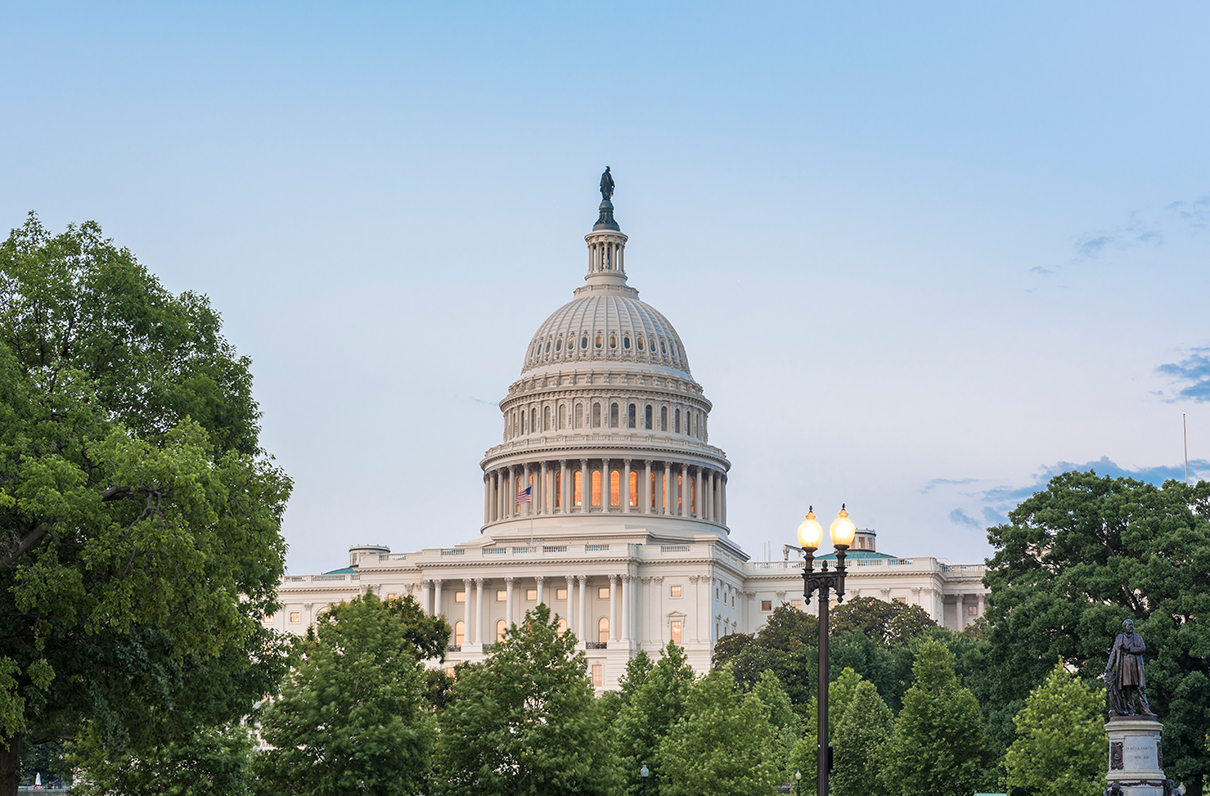The House and Senate Armed Services Committees have started the process of marking up their chamber’s version of the FY 2022 National Defense Authorization Act (NDAA). Both chambers aim to close out most of the markup process before Congress adjourns for its annual August recess and elected officials return to their home states, though other competing priorities on the Hill may change those plans.
The House already has introduced its version of the FY 2022 NDAA, containing topline funding for defense programs. As for the Senate, there is no publicly available version yet. However, this is not unusual; the bill worked on by the Senate Armed Services Committee will typically be formally introduced as the original version to the full Senate rather than being introduced prior to or during the subcommittee/committee markup process. Much of the authorizing process, under Senate rules, is done during closed sessions.
What Is the Legislative Markup Process?
Consideration by committee is one of the first hurdles any bill, including the NDAA, must overcome in the legislative process. It is also the hurdle where most legislation stalls and, as a result, does not advance any farther
Markup is the final step in the committee consideration phase of the legislative process: The subcommittees and full committees will deliberate the bill in session, then vote on whether to report it out of the subcommittee/full committee.
How hard is it to clear this hurdle? Of the 16,601 introduced in the 116th Congress (2019-2020), only 344, or 2%, became enacted laws. That’s down slightly from the 115th Congress, when 13,556 pieces of legislation were introduced and 443 were enacted, about 3%. This single-digit percentage has been the trend for the last five decades.
Despite these low numbers, Congress has successfully passed the NDAA into law for 60 consecutive years. There is no law that requires Congress do this; the NDAA is still just a bill, like any other piece of legislation.
Here’s a list of the subcommittee/full committee markups set for the House and Senate Armed Services Committees:
- Monday, July 19: Senate subcommittees on Strategic Forces and Cybersecurity.
- Tuesday, July 20: Senate subcommittees on Readiness and Management Support, Personnel, Airland, Emerging Threats and Capabilities, and Seapower.
- Wednesday, July 21: Full Senate Armed Services Committee markup.
- Wednesday, July 28: House subcommittees on Cyber, Innovative Technologies, and Information Systems; Strategic Force; Seapower and Projection Forces; and Military Personnel.
- Thursday, July 29: House subcommittee on Tactical Air and Land Forces; Readiness; and Intelligence and Special Operations.
- Wednesday, Sept. 1: Full House Armed Services Committee Markup.
The NDAA is not a budget bill; unlike the 12 appropriations bills, not passing the NDAA by Oct. 1 won’t result in a funding lapse or a shutdown. However, the annual NDAA establishes new DoD policies and programs and can re-authorize programs set to expire; without timely passage of both appropriations and authorization legislation, significant issues can arise with the military pay raise, new quality-of-life programs for servicemembers and their families, and high-quality health care coverage, along with many other support programs and benefits necessary for an all-volunteer force.
[READ MORE: TRICARE and Benefit Improvements, Pay Raise Top MOAA’s NDAA Priority List]
What’s Next From MOAA?
The NDAA markups are only the first step in the legislative process; the desired destination is the president’s desk for signing, so that the FY 2022 NDAA can become law. MOAA will continue engaging with Congress and the executive branch to ensure our legislative priorities make it into the final version of this year’s NDAA.
Be sure to read the weekly newsletter (manage your newsletter preferences at this link) and visit MOAA.org for the latest updates on the NDAA and MOAA’s other advocacy initiatives.
MOAA Looks Out For You
MOAA is committed to protecting the rights of servicemembers and their families. Lend your voice and support these efforts today. Because the larger our voice is, the greater our impact will be.

